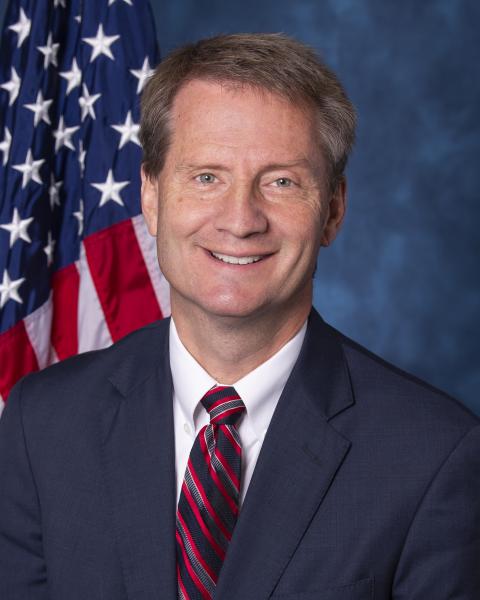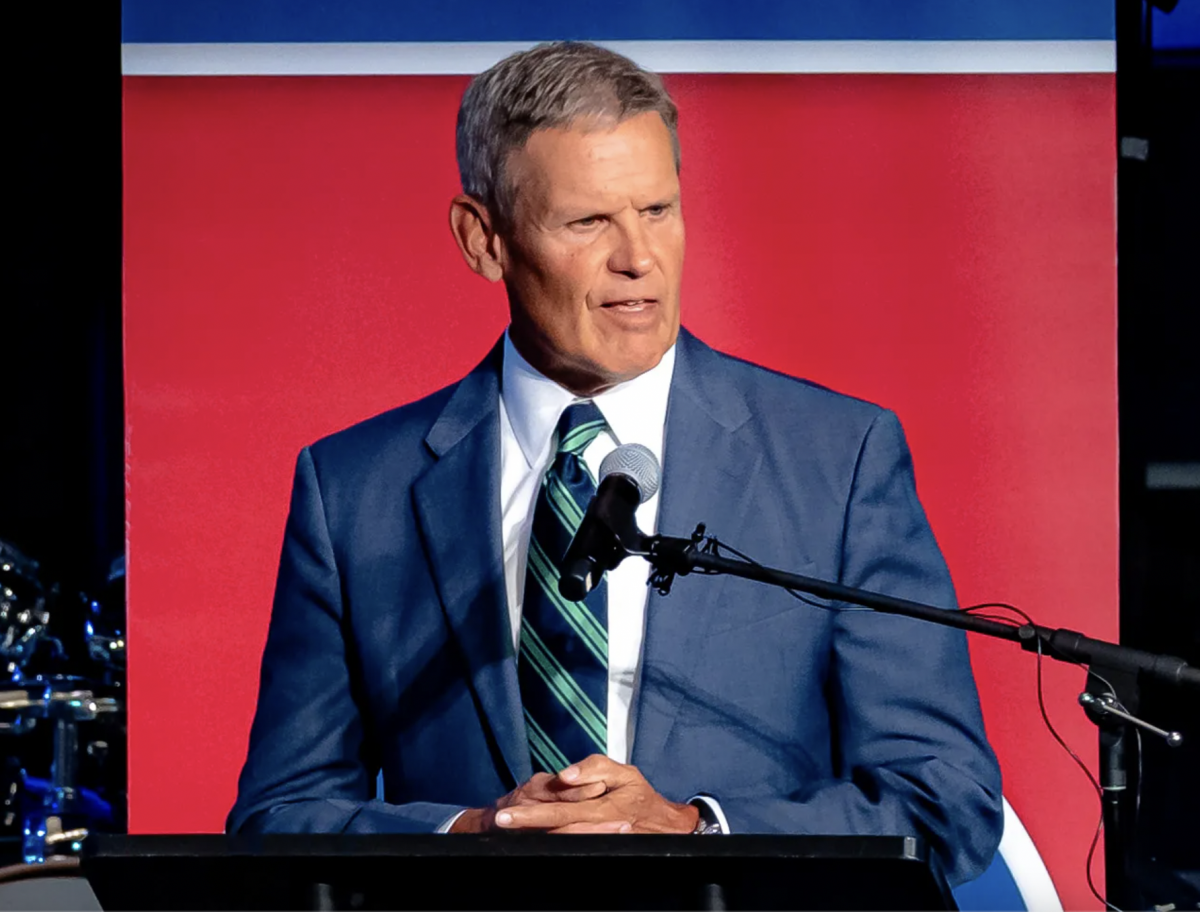Congress may be poised to roll back electric vehicle tax credits and institute new annual taxes on electric vehicle owners — moves that could spell trouble for electric vehicle manufacturers in Tennessee and across the country, according to industry organizations.
The U.S. House of Representatives narrowly passed a revised version of President Donald Trump’s budget reconciliation bill last week. The “One Big Beautiful Bill Act” slashes multiple tax credits available to consumers who purchase new, used and commercial electric vehicles (EVs). It also creates a new annual tax for owners of EVs ($250) and hybrid vehicles ($100), money meant to make up for owners’ lack of gas tax contributions toward infrastructure upkeep.
The bill now moves to the U.S. Senate for consideration. Should it pass, the EV tax credits will expire on December 31, 2025, instead of the original December 2032 sunset date.
Industry advocates and analysts warn that axing the tax credits — which can save buyers up to $7,500 on new, American-made and sourced EVs — will kill the industry’s momentum in Tennessee and put investments and jobs at risk.
Tennessee has incentivized its growing electric vehicle industry with hundreds of millions of dollars of state contributions and tax breaks over the last decade. The Tennessee Department of Economic and Community Development estimates more than 20,000 Tennesseans are employed by companies with EV operations, and EV projects have injected $16.2 billion in capital into the state since 2017. In West Tennessee, BlueOval City’s EV assembly line for Ford’s new electric truck is under construction, and BlueOval SK is gearing up for battery production. The massive $5.6 billion campus is expected to reshape and reinvigorate rural West Tennessee.
The Electrification Coalition, a nonprofit, nonpartisan group advocating for electric vehicle adoption and supportive public policy, called the move a “sledgehammer to Tennessee’s EV industry” in a statement published Tuesday.
EVs in Tennessee: Uncertainty abounds as Trump targets Biden-era electric vehicle funding
“It would eliminate critical tax credits that are spurring private-sector investments, supporting critical mineral supply chain development, creating American jobs and ensuring the United States remains competitive in the global automotive market,” Electrification Coalition executive director Ben Prochazka stated. “Removing these credits would pull the rug out from under the auto and aligned battery industries at a critical time, immediately putting Tennessee jobs at risk. Industry needs policy certainty and consistency to build domestic and allied supply chains.”
Reached by email, the Tennessee Department of Economic & Community Development declined to comment on industry organizations’ concerns.
What does this mean for Tennessee auto manufacturing?
Tennessee’s electric vehicle industry has grown over the last two decades to include manufacturing plants for Ford, Volkswagen, and GM, in addition to multiple companies that produce EV batteries or EV battery components.
Nissan also assembled its all-electric Nissan LEAF at its plant in Smyrna until recently. The 2026 LEAF will be assembled at the company’s Tochigi Plant in Japan, according to a company spokesperson, meaning the company no longer assembles any EVs or hybrid vehicles in Tennessee.
The state has invested hundreds of millions of dollars in the electric vehicle industry over the last decade, according to records kept by the state’s Department of Economic & Community Development. This includes a $78 million grant for the recruitment of Ultium Cells LLC, an EV battery manufacturer, to locate jobs for 1,300 workers in Maury County.
State lawmakers approved a $900 million incentive package for Ford’s BlueOval City campus in 2021, including $500 million in reimbursements for construction work on the campus in Stanton, Tennessee.
Some U.S. Republicans are pushing to keep energy tax credits. Tennessee lawmakers aren’t among them.
While Tennessee’s growth in the industry predates tax incentives created by the Inflation Reduction Act (IRA) under former President Joe Biden to support the production of batteries and battery components in the U.S., those incentives helped companies stand up more cost-competitive electric vehicle plants in the U.S., Harrison Godfrey, managing director of clean energy industry association Advanced Energy United, told Tennessee Lookout in November.
An October Washington Post analysis found Tennessee received an estimated $12.6 billion in investments in clean energy projects since the IRA passed in 2022.
Ford and GM did not respond to requests for comment on the potential rollback of consumer EV tax credits. But the Alliance for Automotive Innovation — an industry group with members from 42 U.S. automotive companies including GM, Ford, Nissan, and Volkswagen — listed support for electric vehicle manufacturing among its 2025 policy priorities.
The organization specifically stated that policymakers should maintain both production tax credits for vehicle manufacturers and “consumer incentives for the purchase of electric vehicles.”
The Nissan spokesperson stated the company’s position on EV tax credits aligns with the policy priorities of Autos Drive America, a trade association representing international automakers in the U.S., including Nissan. Autos Drive America has worked to increase the number of electric vehicles that qualify for the Clean Vehicle Tax Credit since the IRA’s passage in 2022.
The Tennessee Chamber of Commerce did not respond to a request for comment.
Budget politics
In April, Governor Bill Lee celebrated the latest EV-related business expansion in Tennessee: a $54 million investment from automotive supplier Avancez in assembly operations at the BlueOval City Supplier Park.
A spokesperson for Lee did not respond to a request for comment on how EV tax credit rollbacks may impact Tennessee’s continued industry growth.
Lee voiced his support for the budget bill in a post on X on May 21st, saying it will “secure the border, unleash American energy & deliver tax cuts — all measures that guarantee opportunity, security & freedom for the American people.”
The Electrification Coalition urged U.S. senators Marsha Blackburn and Bill Hagerty to “take a more balanced approach” and preserve the tax credits to ensure the U.S. does not fall “further behind” in the global EV market.
Blackburn and Hagerty did not respond to requests for comment.
All of Tennessee’s U.S. Representatives voted in favor of the budget reconciliation bill, except for U.S. Representative Steve Cohen, a Democrat based in Memphis. The bill passed in the House 215-214. All Democratic representatives voted against the bill.
Cohen could not be reached for comment by press time. U.S. Republican representatives DesJarlais, Fleischmann, Green, Harshbarger, Kustoff, Ogles, and Rose did not respond to requests for comment.
U.S. Representative Tim Burchett, a Republican representing East Tennessee, said in an emailed statement to Tennessee Lookout that he voted in favor of the bill due to national debt concerns.

“Our nation is currently $36 trillion in debt,” Burchett stated. “This bill rolls back Biden’s Green New Deal tax credits that we don’t have the money to pay for. I believe in an all-of-the-above energy approach, but we shouldn’t plunge our country deeper in debt as a result.”
Burchett also stated that the new tax for EV and hybrid owners “makes sure all drivers contribute towards our nation’s infrastructure,” as “electric vehicle owners don’t pay a gas tax which is used to fund vital highway projects.”
The Electrification Coalition and Nissan both expressed support for EV and hybrid drivers paying their “fair share” toward infrastructure, but said the new tax level is more punitive than practical.
“We believe the new annual tax should be more in line with the gas tax equivalent [$150] rather than being set at a level that seems punitive,” the Nissan spokesperson stated.
“While all drivers should pay their fair share, this proposal is nearly three times what the average driver pays in federal gas taxes, which have not covered the cost of infrastructure for nearly 20 years,” Prochazka, of the Electrification Coalition, stated. “Rather than imposing a punitive tax on a subset of Americans, Congress should identify a fuel-neutral solution to the Highway Trust Fund’s structural insolvency.”
Tennessee Lookout is part of States Newsroom, a nonprofit news network supported by grants and a coalition of donors as a 501c(3) public charity. Tennessee Lookout maintains editorial independence. Contact Editor Holly McCall for questions: info@tennesseelookout.com.

















